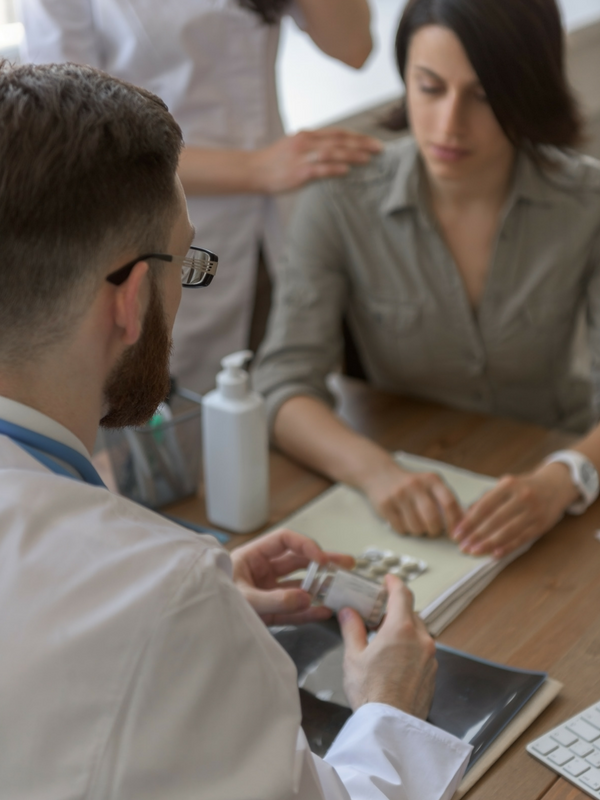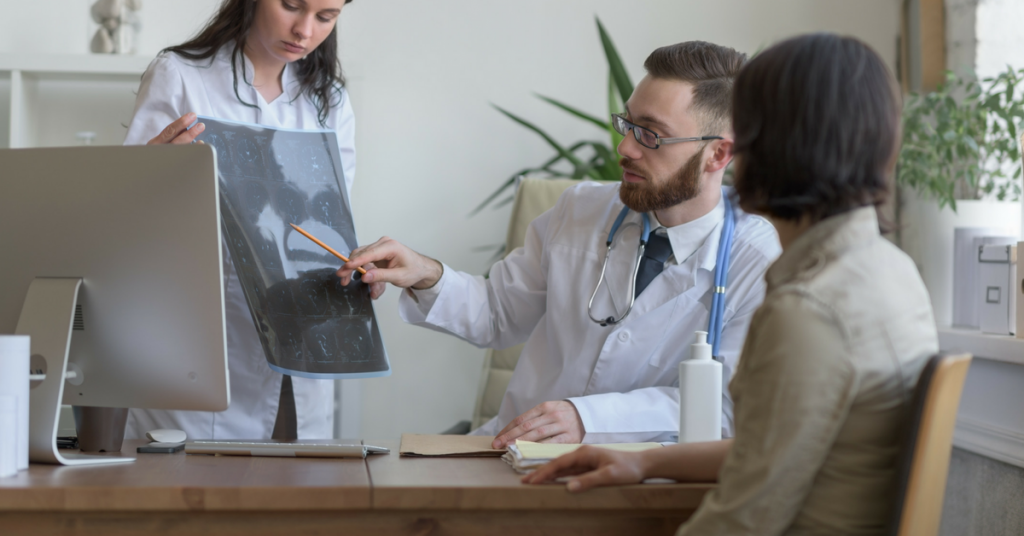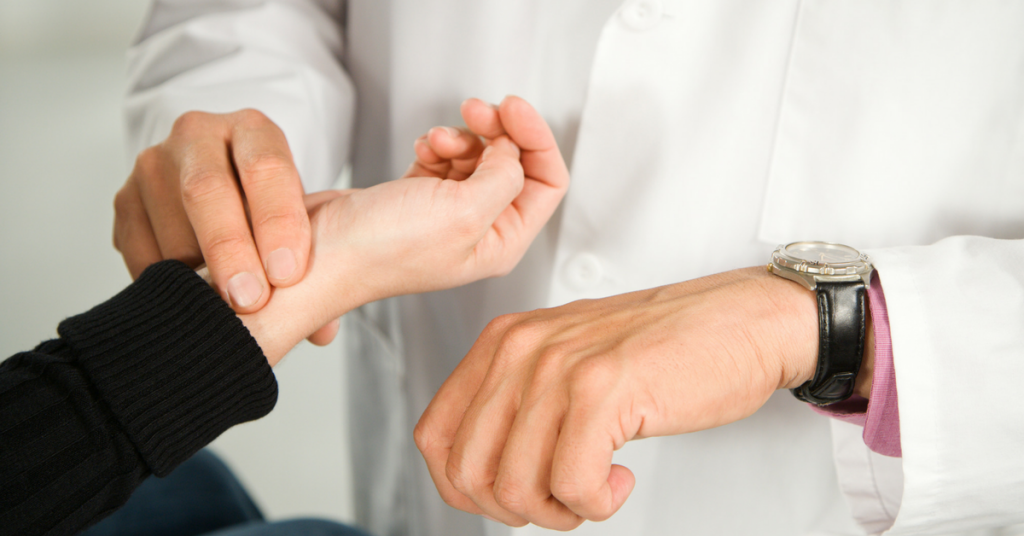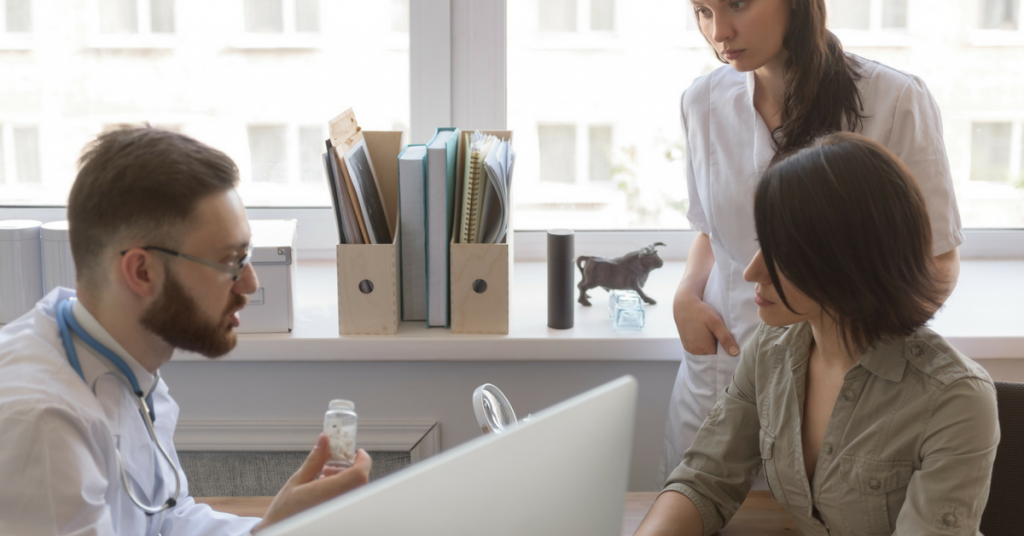Most Cancer patients and caregivers believe that they are in the clear once their Cancer treatment is complete, and the doctor informs them that the Cancer has been ‘managed’.
However, many Cancer mortalities today are a direct result of Secondary Infections acquired after Cancer treatment.

Once the total prescribed treatment has been completed, Cancer patients continue to remain at risk for a variety of bacterial/viral infections and allergies, more than the average individual, because of a compromised immune system and pre-exposure towards the toxicity of various drugs used in the treatment of Cancer. Such infections can lead to serious complications and even death, for patients who may already be in remission.
Secondary infections after cancer treatment

Patients and caregivers must remain extremely cautious against exposure to further toxins, allergens or other environmental factors that could lead to a serious secondary infection. It is extremely sad to witness a patient succumb to an infection after they have successfully managed to defeat Cancer with the right treatment.
Signs that a cancer patient has acquired a post-treatment infection

The following symptoms, if persistent, can indicate that a Cancer patient has acquired a secondary infection. In such cases, an Oncologist should be consulted right away.
- Body temperature of 100.5 degrees Fahrenheit or higher (Persistent fever)
- Chills/Sweats accompanied by Shaking and Fever
- Nagging Sore Throat
- Cough/Shortness of breath
- Congestion in the Nose
- Burning sensation/pain while urinating
- Presence of blood in urine
- White coating/sores on the tongue/oral cavity
- Swelling, secretion, inflammation on site of surgical wound
- Sinus pain, Headache
- Pain in the ears
- Unexplained red inflammation or swelling anywhere in the body
- Stiff neck
- Tenderness and pain in the stomach or abdomen
Risk of infection after surgical cancer treatment
Surgical Cancer treatments are quite common, and any type of major surgery can weaken the immune system. Drugs that are used to induce Anaesthesia (the can also contribute to a weakened Immune System. It can take anywhere between 10 days, to many months for the Immune system to fully recover from the effects of Cancer surgery.
Surgical treatments also disrupt the skin and mucous membranes, exposing internal tissues to possible attack from parasites.The surgical wound site is a common place for infection in Cancer patients.
It is important to understand the factors that can affect the chances of a post-surgical infection in a Cancer patient. These factors include, but are not limited to:
- Duration of a patient’s stay in the hospital
- Extent of surgery (Percentage of incision/penetration of organs during surgery)
- Length/duration of the surgical procedure
- Volume of blood lost during the surgery
- Nutritional status of the patient (pre-existing deficiencies, nutritional conditions, etc)
If a patient has previously received Cancer treatment such as Chemotherapy/Radiation, or has undergone treatment for serious medical conditions such as Diabetes/Coronary Heart Disease, doctors/surgeons usually prescribe antibiotics as a supplement to keep the Immune system robust and to help in preventing post-surgical infections.
Risk of infection after chemotherapy for cancer
Chemotherapy, a common treatment modality for most Cancer patients, is a leading cause of a suppressed immune system, as many Chemo drugs are known to attack all healthy rapidly dividing cells. As such, any Cancer patients who receive Chemotherapy remain largely at risk of acquiring a secondary infection. Factors that influence the risk of an infection after Chemotherapy, include:
- The nature of drugs being used in Chemotherapy
- The dosage of the drug being administered
- The frequency of Chemotherapy cycles
- The patient’s treatment history
- The age of the patient
- The stage and type of Cancer
- Nutritional status of the patient (pre-existing deficiencies, nutritional conditions, etc)
Some chemotherapy drugs are known to affect the Bone Marrow and Immune System more than others. Chemotherapy drugs are also known to impact the production of white blood cells, red blood cells, and platelets in the human body. In most cases, Immune Cells (WBCs) get affected the most. It can take several weeks/months for the immune system of a Cancer patient to recover fully after Chemotherapy.
Risk of infection after radiation therapy for cancer
Similar to the side effects of Chemotherapy, Radiation treatments also compromise the human immune system, reducing the overall White Blood Cell count and leaving the patient susceptible to acquire secondary infections.
Factors that control and affect the risk of a secondary infection after receiving Radiation Therapy, include:
- The total dosage of Radiation
- The schedule/frequency of Radiation
- The body part that is being exposed to Radiation
- Overall percentage of body tissue being exposed to Radiation
- Total Body Irradiation (TBI) – Here, a person’s entire body is treated with radiation. This type of radiation is likely to cause very low WBC counts and is normally used during a Bone Marrow Transplant / Stem Cell Transplant.
In order to avoid Immunosuppression and reduce damage to the skin and other tissues, Radiologists today usually do not opt for frequent dosages/cycles of radiation and do not expose the entire body to radiation unless absolutely necessary.
Nevertheless, it is important for all patients who have received Radiation treatments, to be aware that their immune system is suppressed, and that they are likely to catch an environmentally augmented infection unless proper precautions are taken.
Risk of infection after immunotherapy treatments for cancer
Yes, secondary infections can arise even in cases of patients who end up receiving advanced treatment modalities such as Immunotherapy. Although in principle these treatments strengthen the immune system, they involve the intravenous injection of chemicals such as like man-made immune system proteins.
And while these augmentations/enhancements are designed to promote immune reactions against cancer cells, sometimes they end up changing the way the immune system functions. And due to this nature of Immunotherapy treatments, people who receive biologic therapies may also be at risk for Immunosuppression.
At low levels of certain lymphocytes (White Blood Cells), the chances of acquiring specific types of serious fungal/viral infections, become very high. An increase in genetically modified WBCs can also lead to a decrease in regular WBC counts, making the body prone to infections. Immunotherapy patients must therefore also remain extremely cautions against acquiring a secondary infection while they are in remission.
Risk of infection after a Stem Cell Transplant / Bone Marrow Transplant procedure for cancer
The SCT (Stem Cell Transplant) umbrella today extends to include treatments such as a Bone Marrow Transplant (BMT), Peripheral Blood Stem Cell Transplant (PBSCT), and Umbilical Cord Blood Stem Cell Transplant (UCBSCT). For such treatments, doctors often prescribe high dosages of Chemotherapy and/or Total Body Irradiation (TBI) to completely eliminate the presence of Cancer cells.
And in this process of killing cancer cells, the normal blood-forming stem cells of the patient’s bone marrow also get destroyed. To prevent this occurence, doctors usually remove stem cells (either from the blood or bone marrow) from the patient and securely store them before the application of a high-dose Chempthrapy drug, or high-scale radiation.
The immune system of patients is essentially rebuilt after such therapies by re-infusing the Stem Cells that were harvested earlier. However, a combination of high-dosage Chemotherapy and TBI can result in severe, long term Immunosuppression and make patients susceptible to catch a secondary infection.
Preventing secondary infections after cancer

In order to minimise the risk of acquiring a secondary infection after Cancer treatment, it is important for all patients and caregivers to have a detailed discussion with the attending Oncologists/surgeons prior to discharge, and to regularly follow-up with them in case any serious symptoms are seen. The following are some of the best practices that should be adopted by all in-remission Cancer patients/patients in palliative care:
- Knowing an estimated time frame for which the patient’s immune system is likely to be weak (Consult an Oncologist for this)
- Knowing how to check for a fever and how often to check for it (Consult an Oncologist for this)
- Washing hands regularly/maintaining bodily hygiene for the patient
- Regularly checking the mouth/tongue for sores and signs of infection
- Sterilizing all IVs and CVCs (Central Venous Catheters) is in use
- Drinking plenty of fluids
- Adhering to the prescribed post-treatment diet/nutrition plan (Consult an Oncologist for this)
- Getting an adequate amount of sleep (6-8 hours for adults)
- Engaging in moderate, supervised exercise on a daily basis
- Avoiding OTC (Over The Counter) medication strictly, unless advised by an Oncologist
- Wearing pollution masks when stepping outside the house
- Using a state-of-the-art Air Purifier within indoor spaces
- Moisturising and hydrating the skin in order to prevent rashes/infections
Further Reading : What Is Remission?
Thanks for reading!
Found this article helpful? Share it on your social feeds with your friends, family and loved ones. Send it on your Family WhatsApp group, maybe! But most of all, give us your feedback!


